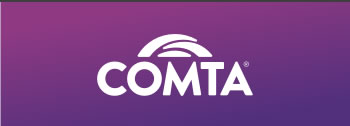Great New Training Class:
Students with Disabilities: Obligations and Opportunities
To view as PDF, click here
By Angie Myer, Content Accreditation Specialist
May 17, 2012
The COMTA Staff has been fielding more questions from school members about their rights and responsibilities in serving students with disabilities—with physical, mental, and learning disabilities. To address this need, we have found (and tested) an excellent online training course that is very informative in helping you best serve your students and be in compliance with all laws. It’s important to remember that all businesses—including private schools with no public funding—must comply with the American with Disabilities Act. But how to do so can be confusing, and this course can help you navigate through all the legal and ethical issues.
Students with Disabilities: Obligations and Opportunities (CM 251) was developed and is facilitated by Dr. Jane Jarrow, founder and president of Disability Compliance in Career and Online Learning, and of Disability Access Information and Support. She is both very knowledgeable and interactive with participants to address specific questions.
Take a look at the course description and learning objectives to see if this can benefit your school. (Remember: COMTA training courses can count toward your faculty and staff professional development requirements.)
CM 251 Students with Disabilities: Obligations and Opportunities
This course provides faculty, staff, and administrators with an understanding of the legal mandates regarding equal access for students with disability. More importantly, it provides a practical framework to help institutional personnel know what to say and do in the context of their defined role and interactions with students with disabilities. Topics include the civil rights nature of applicable Federal law, definitional issues, the impact of disability on traditional education activities and pursuits, reasonable accommodations, and the unique responsibilities of faculty, staff, and administrators as prescribed by their position.
Module 1: Legal Obligations and Opportunities!
- Learn how Section 504 and the ADA apply to higher education.
- Understand the definition of key terms, including ‘person with a disability’ and ‘otherwise qualified.’
- Explore the circumstances under which an accommodation would not be reasonable.
- Differentiate between institutional responsibilities/rights, and student responsibilities/rights in implementing 504/ADA.
- Learn how implementation changes and expands with new populations/new technology; examples of students with Autism, service/support animals, new technologies and online learning.
Module 2: The Impact of Disability
- Learn how the concept of functional limitations is more important than disability diagnosis in determining need/accommodation.
- Explore the impact of vision, hearing, and speech disabilities on classroom and educational pursuits.
- Understand the implications of significant mobility and health impairments both in and out of the classroom.
- Learn how the functional limitations of LD/ADHD can create barriers to traditional academic and co-curricular activities.
- Understand the barriers faced by students with psychological disabilities and appropriate response to their needs.
Module 3: The Accommodation Process
- Learn the important distinction between accommodations provided for access and services that support student success.
- Understand how documentation of the student’s functional limitations provides a blueprint for accommodation.
- Determine the nature and scope of responsibility for assigning and facilitating accommodations in your environment.
- Practice creative problem solving in devising unusual solutions to accommodation challenges.
- Understand how the concept of Universal Design provides a healthier blueprint for the successful inclusion of students with disabilities.
Module 4: What Is MY Role?
- Recognize how perceptions of traditional roles and practitioners can limit opportunities for students with disabilities.
- Differentiate between appropriate questions for pre and post admissions conversations regarding the student’s disability.
- Learn the basic principles guiding development of legally defensible technical standards.
- Learn how to separate honest responses from pre established biases regarding the abilities of people with disabilities.
- Understand the limits of the Admissions representative’s purview legally and under institutional policy.
To learn more or purchase enrollment keys at COMTA’s reduced rate, follow this link: http://www.comtatraining.org/CM251.php
